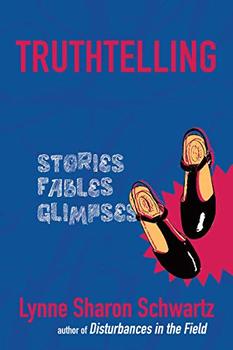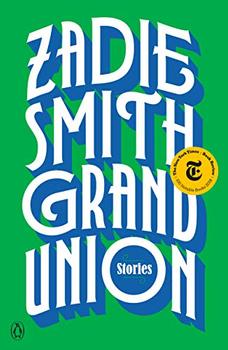Summary | Excerpt | Reviews | Beyond the book | Read-Alikes | Genres & Themes | Author Bio

Stories
by Deborah EisenbergIn this collection of six short stories, Deborah Eisenberg presents characters confronting limits and contradictions related to memory and perspective. If two people remember an incident entirely differently, for instance, who (if anyone) is correct? How much can information gleaned secondhand be trusted, particularly if one is hearing an account of someone no longer around to explain themselves? As one character wonders in frustration, "How would anybody know anything about anybody?"
This character, Emma, from the story "Taj Mahal," is piecing together facts about her mother's life from accounts related by her friends, all of whom were fellow Hollywood actors/actresses, now elderly and recalling their glory days. In another story, "Cross Off and Move On," the narrator recalls her childhood in which she was frequently shuffled off to the home of her three unmarried aunts when her single mother was working or too exhausted to parent. She cobbles together a family history out of the random facts and recollections tossed out by the four women raising her (which includes her grandparents' flight from Europe during World War II, during which almost all of their extended family were killed in concentration camps).
Two other stories concern the poisoning of the environment and imperialist exploitation of other cultures by capitalist corporate entities. The first of these is the title story, "Your Duck is My Duck," which centers around a painter who falls into the orbit of a wealthy couple. They invite her to their vacation home on an unnamed island where she learns from a fellow guest that her patrons are responsible for the destruction of the local agricultural economy. They've bought up farmland and planted eucalyptus instead of food crops. To make matters worse, the eucalyptus bursts into flames when struck by lightning, and the narrator finds herself an observer of a haunting scene, as "the demonic, vengeful, helpless, ardent fires...consumed the trees that had replaced the crops..." The fires are a clever (if not exactly subtle) sustained symbol of the ruin of this entire island by a single selfish man, a ruin that the narrator inadvertently finds herself complicit in by association.
Eisenberg's best descriptive and symbolic work is in "Cross Off and Move On," particularly with regard to the narrator's reverence for her aunts' house, which she feels shrouds the many mysteries she seeks to solve concerning her family history. "I can't shake off the thought that the house dematerializes at night – its own form of sleep when its inhabitants are sleeping," the narrator explains. The house is stocked with family heirlooms and antiques: "The ghosts flimmer in their chairs...the stopped gilt clocks and cracked ornaments begin to pulse with the living current of their memories." Eisenberg's language is poetic, but never flowery or obscure; her imagery is evocative and memorable.
In "The Third Tower," Eisenberg makes a brief foray into fantasy, telling the story of a young woman in a fictitious oppressive society sent to receive medical treatment for a mysterious illness, which turns out to be something of a cross between synesthesia and a simple vivid imagination. This is an allegory (again, not a very subtle one) about the perils of a creatively restrictive society. This piece also contains references to capitalist excesses, as the main character tries to convince herself that everything is fine after a particularly disturbing image enters her head: "And anyhow, her town is normal – a normal, busy town. The malls are filled with people shopping."
A couple of the stories never really get off the ground, and some wander a bit aimlessly before coming to the point, but the well-crafted and clever pieces of Your Duck is My Duck outweigh the weaker ones. Eisenberg is adept at creating an arresting mood and rendering complex characters, particularly those who are seeking some kind of meaning or understanding in their lives. Even if some of the stories' plots are a little thin, the protagonists are worth taking the time to get to know.
![]() This review was originally published in The BookBrowse Review in October 2018, and has been updated for the
July 2019 edition.
Click here to go to this issue.
This review was originally published in The BookBrowse Review in October 2018, and has been updated for the
July 2019 edition.
Click here to go to this issue.

If you liked Your Duck Is My Duck, try these:

by Lynne Schwartz
Published 2021
With her new dazzling collection of short fiction, Schwartz has propelled herself to the front rank of inventive short story writers such as George Saunders and David Means.

by Zadie Smith
Published 2020
Zadie Smith has established herself as one of the most iconic, critically respected, and popular writers of her generation. In her first short story collection, she combines her power of observation and her inimitable voice to mine the fraught and complex experience of life in the modern world.
Your guide toexceptional books
BookBrowse seeks out and recommends the best in contemporary fiction and nonfiction—books that not only engage and entertain but also deepen our understanding of ourselves and the world around us.